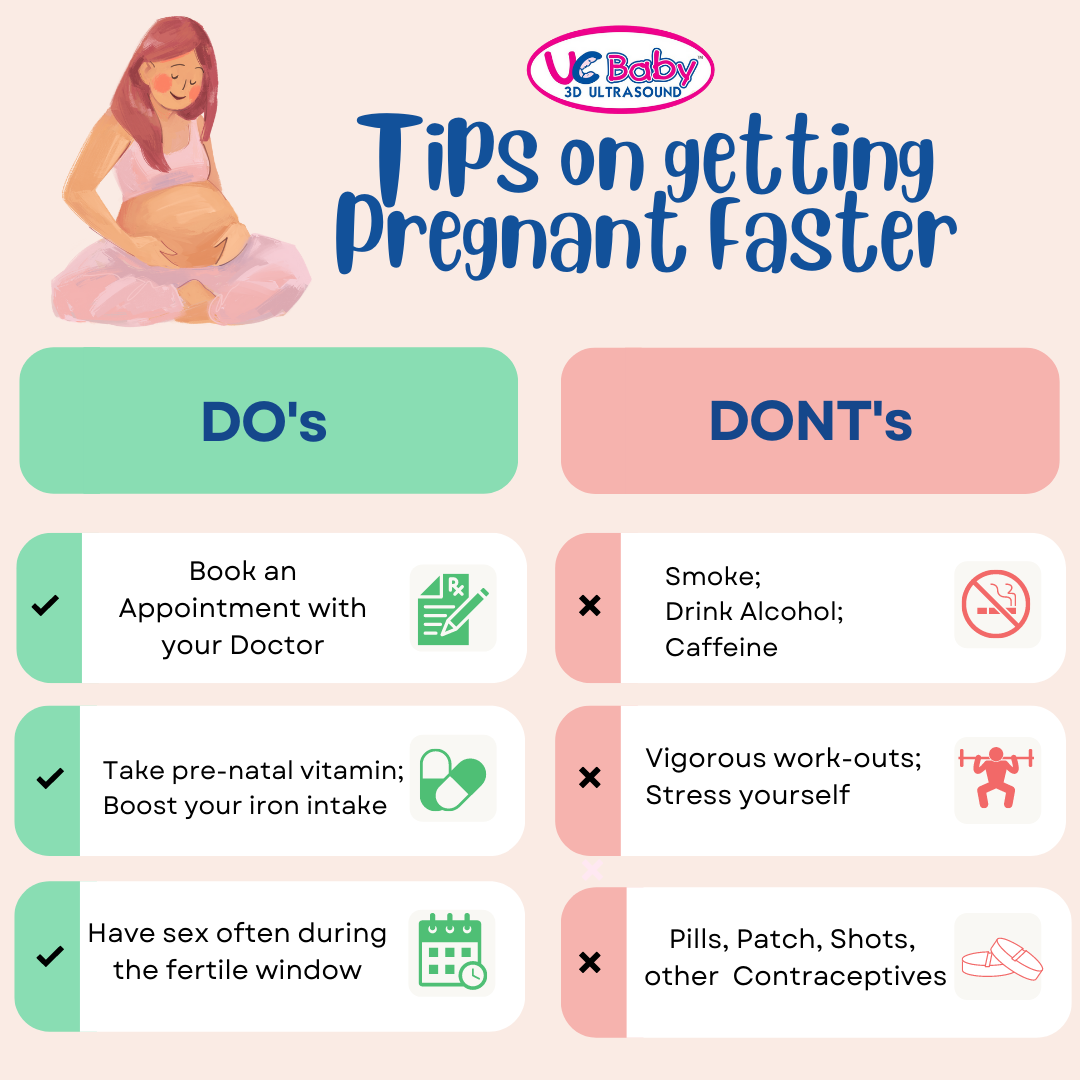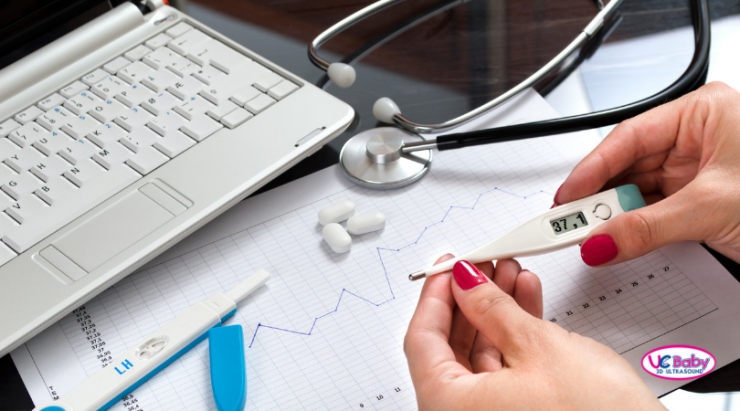The moment you decide you’re ready to have a baby, you want it to happen quickly – like today, if possible. While there’s no magic pill that will ensure instant conception or even an express route to conceiving, there are things you can do to prepare your body for a healthy pregnancy. Here are some tips on how to get pregnant faster:
Ditch the Birth Control
Firstly, say goodbye to the pill, patch, shot – or any other form of contraceptives. The sooner you stop, the faster your cycle can return to its natural groove. Hormonal contraceptives usually contain a combo of estrogen and progesterone which keeps you from getting pregnant by suppressing ovulation. That’s why it can take up to a few months after getting off birth control for your period to regulate and your hormones to get up to speed again.
Generally, three months prior is the preferred time for women to stop taking birth control but it can take up to nine months (or longer) for your reproductive system to bounce back if using the Depo-Provera injection.
Book an Appointment for a Check-Up
It’s important to make sure everything is in working order so it’s a good idea to book an appointment with your practitioner or midwife. They can suggest helpful tips on the baby-making to-do list. Such as making sure you and your partner are in your best baby-making shape possible and informing you of what medications aren’t baby-friendly.
This check-up will help identify any fertility issues and once all systems are a go – you can get down to business.
Exercise Wisely
Studies show that being fit can make you more fertile. Exercise lowers blood pressure, reduces your levels of the stress hormone cortisol, and increases blood flow to other reproductive organs.
But don’t overdo it. Other research shows that super-vigorous workouts can derail your pregnancy plans.
Fast pace aerobics like running or cycling can mess with your menstrual cycles and even temporarily stop ovulation. To find a balance between working out too hard and not hard enough, talk to your doctor. In the meantime, you can always do easy exercises like walking.
How to Know When You’re Ovulating
Ovulation typically occurs around 14 days before the last day of a women’s menstrual cycle (the day before your period starts). If you have a regular 28-day menstrual cycle then ovulation would likely occur on day 14. You are most fertile in the days leading up to ovulation.
Learn more on Getting Pregnant: Ovulation and Fertility
Eat Healthy Foods
Although there may not be a specific fertility-promoting diet, eating a variety of healthy foods can prepare a women’s body for pregnancy by giving her nutrients. This means eating a variety of fruits and vegetables, lean proteins, whole grains, dairy and healthy sources of fat.
The Food and Drug Administration recommends eating lower amounts of high-mercury fish such as swordfish, shark, king mackerel and tilefish, to reduce the exposure to this toxic metal, when trying to get pregnant.
Also, take it easy on the caffeine. Consuming more than 500 milligrams of caffeine a day has been linked to a decrease of fertility in women. Having one to two cups per day before becoming pregnant, appears to have no impact.
Know Your Odds
Lastly, if you are under 35 and generally healthy you’ll most likely conceive in the next 18 months. About 60 percent of couples in North America conceive in the first 6 months.
Keep in mind your fertility does start to decline after age 35, so if you’re older it may take longer to conceive. If you’re older than 35 and haven’t conceived after 6 months of trying, it’s best to see a specialist because your fertility window may be getting smaller.
Additional Tips:
- Take prenatal vitamin
- Boost your diary and iron intake
- Skip the lubricant
- Don’t worry too much (lower your stress levels)
- Have sex often during the fertile window
- Kick the smoking and drinking habits

REFERENCES:
10 Tips for Getting Pregnant Faster
Trying to conceive: 10 tips for women
Written by: Melissa Ureten





 Invitez familles et amis à assister à cet événement mémorable de votre grossesse. Célébrez avec vos proches où qu’ils soient dans le monde ce moment spécial de lien avec l’enfant.
Invitez familles et amis à assister à cet événement mémorable de votre grossesse. Célébrez avec vos proches où qu’ils soient dans le monde ce moment spécial de lien avec l’enfant. Rien n’est plus beau que les battements de cœur de votre bébé. Enregistrez ce son pour toujours dans un Ourson Coup de cœur de UC Baby®. Il ne s’agit pas simplement d’un beau souvenir, mais aussi d’un moyen efficace qui apaise votre bébé pour l’aider à s’endormir.
Rien n’est plus beau que les battements de cœur de votre bébé. Enregistrez ce son pour toujours dans un Ourson Coup de cœur de UC Baby®. Il ne s’agit pas simplement d’un beau souvenir, mais aussi d’un moyen efficace qui apaise votre bébé pour l’aider à s’endormir.

